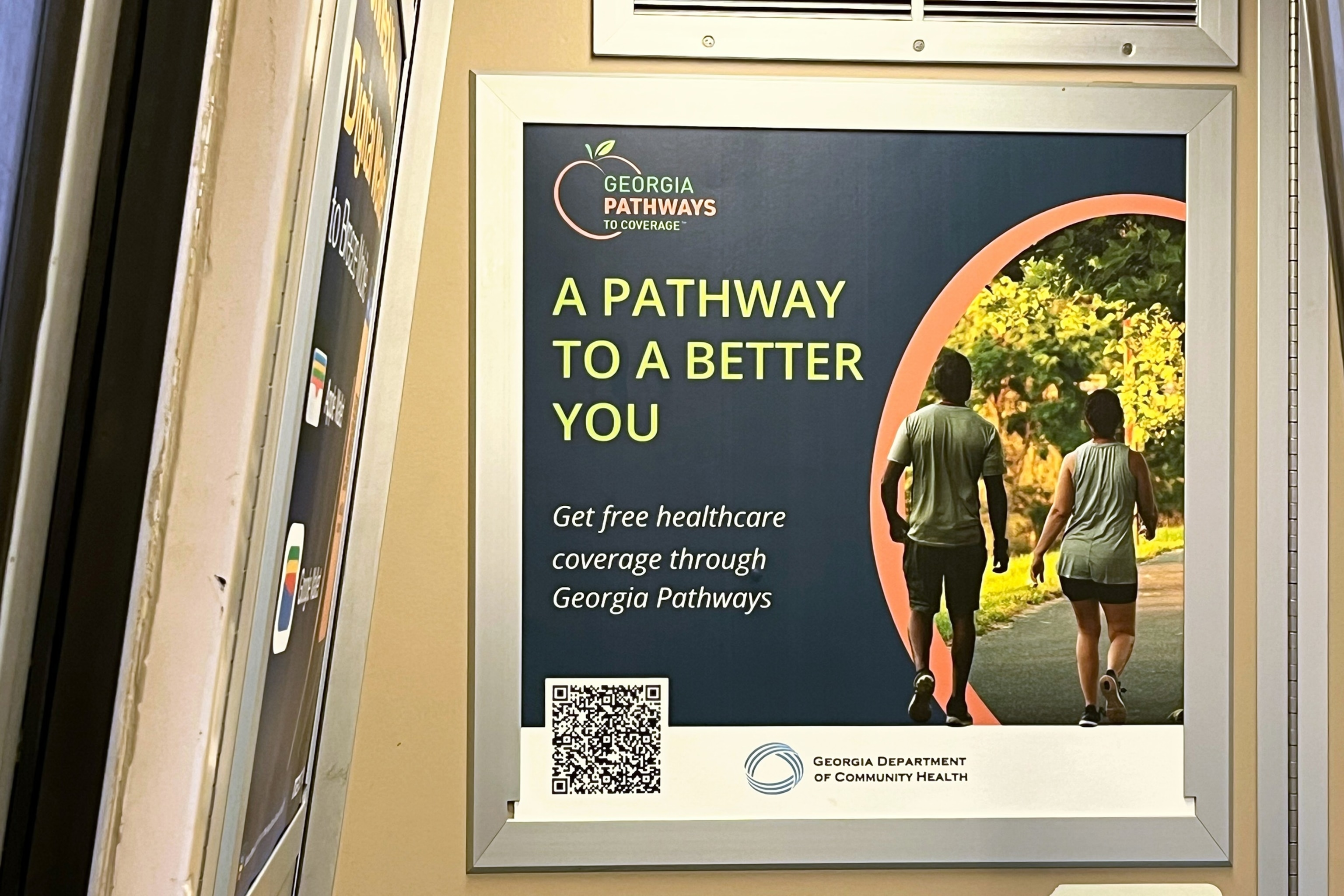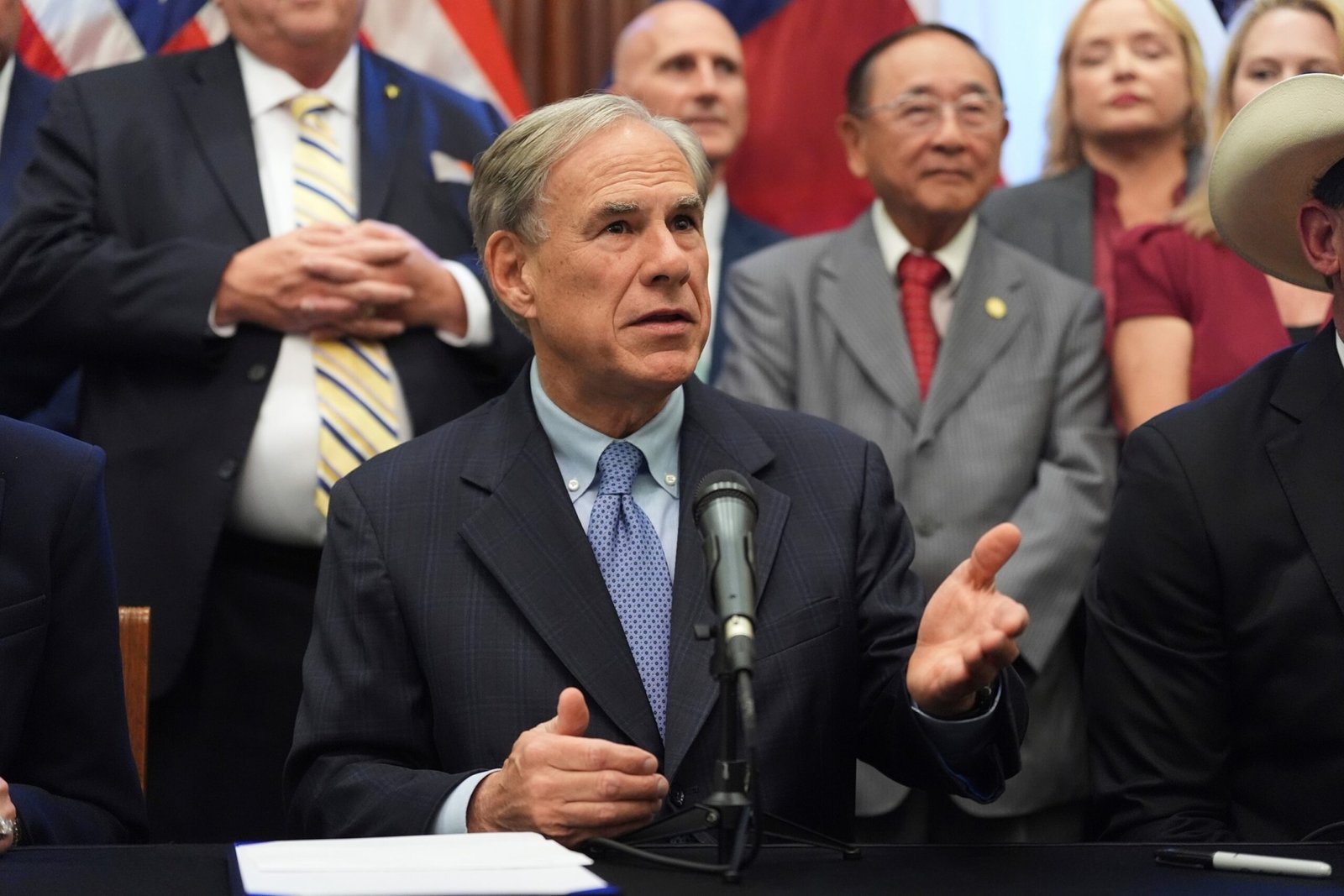This is KFF Health news.
Every time Ashton Alexander sees an announcement for Georgia roads to coverageHe feels like a “kick in the face.”
Alexander tried to register in Pathways, the limited expansion of Medicaid of the State, several times and was denied every time, he said, although he fulfilled the terms of qualification because he is a full -time student.
Georgia is one of the 10 states that have not expanded Medicaid’s health coverage to a broader group of low -income adults. On the other hand, it offers coverage to those who can prove that they are working or completing 80 hours a month from other qualification activities, such as going to school or volunteering. And it is the only state that currently does.
“Why is this marketing here?” The 20 -year -old said, who lives in Conyers, east of Atlanta. “It really is not accessible.”
Alexander said that each denial used the same language of the boiler, and his calls to social workers were not returned. The state offices could not connect it with the social workers assigned to him from the same state agency. And when he requested contact information for a supervisor to appeal his denial, he said, the number rang to a fax machine.
“It’s impenetrable,” said Alexander. “I have literally tried everything, and there is no form.”

A train announcement in Atlanta on May 26, 2025 promotes Georgia’s ways towards coverage, which conditions Medicaid’s coverage on work, study or volunteering.
Gabe Brison-Trezise/Kff Health News
Millions of Americans trying to access the benefits of Medicaid could soon be sailing through similar Byzantine state systems and work rules. Legislation Signed by law By President Donald Trump on July 4 he assigned $ 200 million to help states that Medicaid expanded to create systems at the end of next year to verify if some affiliates meet the requirements.
Conservative legislators have argued for a long time that public benefits should only go to those who actively work to get out of government assistance. But the only medical work requirements of the Nation shows that they can be expensive for states to work, frustrating that affiliates navigate and harm other public benefit systems. Georgia’s budget for marketing is almost as much as he has spent on health benefits. Meanwhile, most members under 65 They are already working or have a barrier that prevents them from doing so.
What Georgia shows is “how expensive the configuration of these administrative bureaucracy systems can be,” said Joan Alker, executive director of the Children and Families Center of the University of Georgetown.
In the last two years, Kff Health News has documented the problems that accumulate the Georgia Pathways program, launched in July 2023. More than 100,000 Georgians have requested the program until March. A little more than 8,000 registered at the end of June, although on 300,000 would be eligible If the State completely expanded Medicaid under the terms of the Law on Health Care at a low price.
The program has cost more than $ 100 million, with only $ 26 million spent on health benefits and more than $ 20 million assigned to marketing contracts, according to an analysis of KFF Health News of state reports.
“That was really a rather shocking waste of taxpayers dollars,” Alker said.
The government’s responsibility office is investigating costs From the program after a group of Democratic senators, including both members of the Georgia delegation, asked the government control agency to investigate the program. This fall is expected.
A state report To the federal government as of March, he said that Georgia could not effectively determine if the applicants comply with the criteria of qualification activities. The report also said that the State had not suspended anyone for not working, a key philosophical pillar of the program. Meanwhile, as of March, more than 5,000 people expected their eligibility to the roads to be verified.
The Pathways program It has been tensioned Georgia’s eligibility system for other public benefits, such as food coupons and cash assistance.
In April, the State asked the Federal Government to renew the roads. In its application, The officials raised Key elements, such as the requirement that those registered in documents work every month. Program critics also say that bureaucracy does not help affiliates to find work.

The Medicare and Medicaid Services Office, part of the Department of Health and Human Services, is located in Woodlawn, Maryland, December 28, 2010.
Jay Mallin/Bloomberg through Getty Images
“Georgia’s experience shows that administrative complexity is the main result, not labor preparation,” said Natalie Crawford, executive director of Georgia first, who advocates for fiscal responsibility and access to affordable medical care.
Despite the struggles, Garrison Douglas, spokesman for the Republican governor of Georgia, Brian Kemp, defended the program. “Georgia Pathways is doing what was designed to do: provide free medical care coverage to low -income and body georgians who are willing to participate in one of our many qualification activities,” he said in a statement sent by email.
The new federal requirements in the fiscal and spending legislation mean that the 40 states (more Washington, DC) that Medicaid expanded must prepare technology to process the documentation that some medicalid recipients will now have to present regularly.
The Federal Law includes exemptions for people with disabilities, in treatment of addictions or care of children under 14, among others.
The Trump administration said that other states will not face a launch full of potholes like Georgia’s.
“We are totally sure that there is already technology that could allow all the parties involved to implement labor and community participation requirements,” said Mehmet Oz, head of the Medicare centers AND Medicaid services, in a statement sent by email.
In a public comment written about Georgia’s application to extend the program, Yvonne Taylor de Austell detailed the difficulties she faced when trying to register.
She said she tried to register several times, but that her request was not accepted. “Not once, not twice, but three times. Without customer service response,” he wrote in February. “So now I have no coverage.”
Victoria Helmly de Marietta wrote in a January comment that she and her family members take care of her father, but the state law does not exempt the caretakers of the elderly.
“Georgia should recognize their sacrifices supporting them with health insurance,” he wrote. “Let’s simplify this system and in the end, we save money and lives.”




